Is Social Media Over-Sexualising Fitness?
Are Instagram’s hard bodies and barely-there yoga pants inspiring or just downright inappropriate? We ask the industry
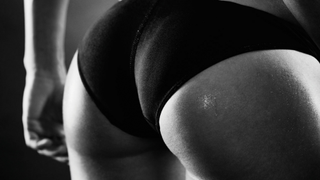
We're used to seeing a #goals hashtag accompanied by a good deal of bare flesh, but it got the guys at Men’s Fitness thinking: does it really need to be like that? To find out if the Instagram gym tribe has bared one glute too many, we collected the opinions of people from all corners of the fitness industry, including an Instagrammer. Here’s what they had to say.
The author
Marilyn McKenna lost over 50kg, wrote a book about her experience and now helps others get fit
“I’d say yes – fitness has been sexualised or even pornified. Having said that, there’s no escaping our evolutionary truth: we are visual creatures. There’s also no point denying that the human form is beautiful. The problem is that when we idealise only one body type, we diminish the innumerable other body types that make up the rainbow of human forms. It’s great to be inspired to exercise more, but the images posted by some popular fitness accounts are at best intimidating and at worst totally unattainable for most of us.
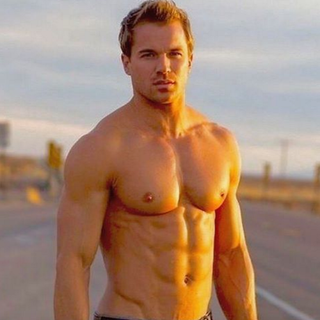
Instagram/Chris Ryan
“We have to ask ourselves, can’t someone be badass without being a hot piece of ass? I say they can. All bodies are beautiful – thin, muscular, taut or flabby. Badass is a state of mind, not a body fat percentage. Anyone who hopes to inspire people of all body types to pursue fitness would do well to remember that.”
The Instagram star
Emily Skye runs her own training programme, has a massive Instagram following and the world’s most popular Facebook fitness profile
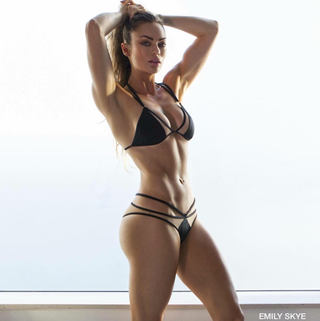
Instagram/Emily Skye
Get the Coach Newsletter
Sign up for workout ideas, training advice, reviews of the latest gear and more.
“Adding #fitness to a social media post doesn’t necessarily mean it has anything to do with fitness, or at least what fitness means to me. I’m all for being confident and showing off your hard work – particularly if it inspires and transforms other people’s lives – but a lot of social media posts that claim to be about ‘fitspiration’ are nothing more than softcore pornography.
“I meet amazing people in the industry that work hard, achieve their goals and put out positive messages, so it disappoints me to see smart, beautiful people taking their clothes off and claiming it’s about being healthy to get more followers, not realising the damage they’re doing. Associations like that give fitness a bad name and send a dangerous message to young people desperate for acceptance. I believe in doing what makes you happy and if posting that type of imagery does that for you, that’s cool – but if you ask me it’s nothing to do with fitness. But it can easily be ignored. You just have to follow the right people.”
The journalist
Andrew Bisharat runs climbing website eveningsends.com, is editor at large for Rock And Ice magazine and writes for National Geographic Adventure
“We live in what I call the Age of the Athlete Model. They create compelling visual stories because they look so damn good doing whatever they’re doing – they’re idols, walking avatars for happy lifestyles.
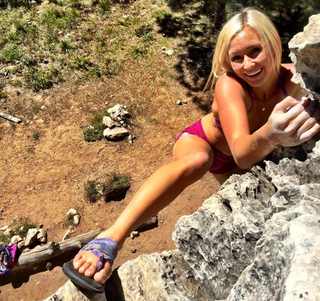
Instagram/Sierra Blair-Coyle
“Take Sierra Blair-Coyle [above], for example – she’s a rock climber and I follow her on Instagram, along with around 70,400 others, and I’m also one of 294,000 people who Like her athlete page on Facebook. I can’t say why anyone else follows her, but my reason has always been simple: she’s totally hot. In photos she’s usually smiling, wearing a cute outfit and often doing something that vaguely resembles real rock climbing.
“Being a professional athlete used be about athleticism, not recognition or fame, but now it’s the other way around: athletic recognition is the by-product of popularity and popularity is the result of attractiveness. I suppose it’s a little sad, but it’s true, and it’s not just fitness that’s affected.”
The columnist
Tosca Reno is founder of the Eat-Clean diet, a fitness model and a certified nutritional therapy practitioner
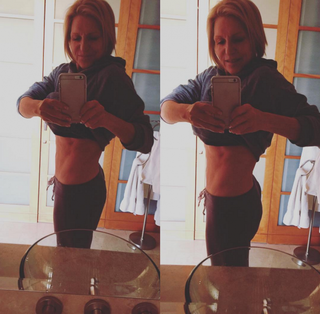
Instagram/Tosca Reno
“There’s definitely a growing number of people who conflate fitness with sex, and social media is one the main reasons. People need to think about how they’re presenting themselves to a potentially huge audience and how young people will approach exercise if that kind of thing becomes normal. By associating sexualised imagery with fitness we’re saying it’s acceptable to post those kinds of pictures online, but those sorts of images say nothing positive about us as people. They don’t even show how fit we really are.
“It’s not just women trying to emulate these over-sexualised, often unrealistic body images – we’re seeing all sorts of eating disorders and cases of body dysmorphia among young men. Wellness should be our greatest concern and the reason why we get into fitness. The way we look should be entirely secondary. Wellness is about incorporating every aspect of body, mind, soul and nutrition. That should be the real struggle, not looking for followers and ‘likes’ in a G-string.”
Coach is a health and fitness title. This byline is used for posting sponsored content, book extracts and the like. It is also used as a placeholder for articles published a long time ago when the original author is unclear. You can find out more about this publication and find the contact details of the editorial team on the About Us page.

